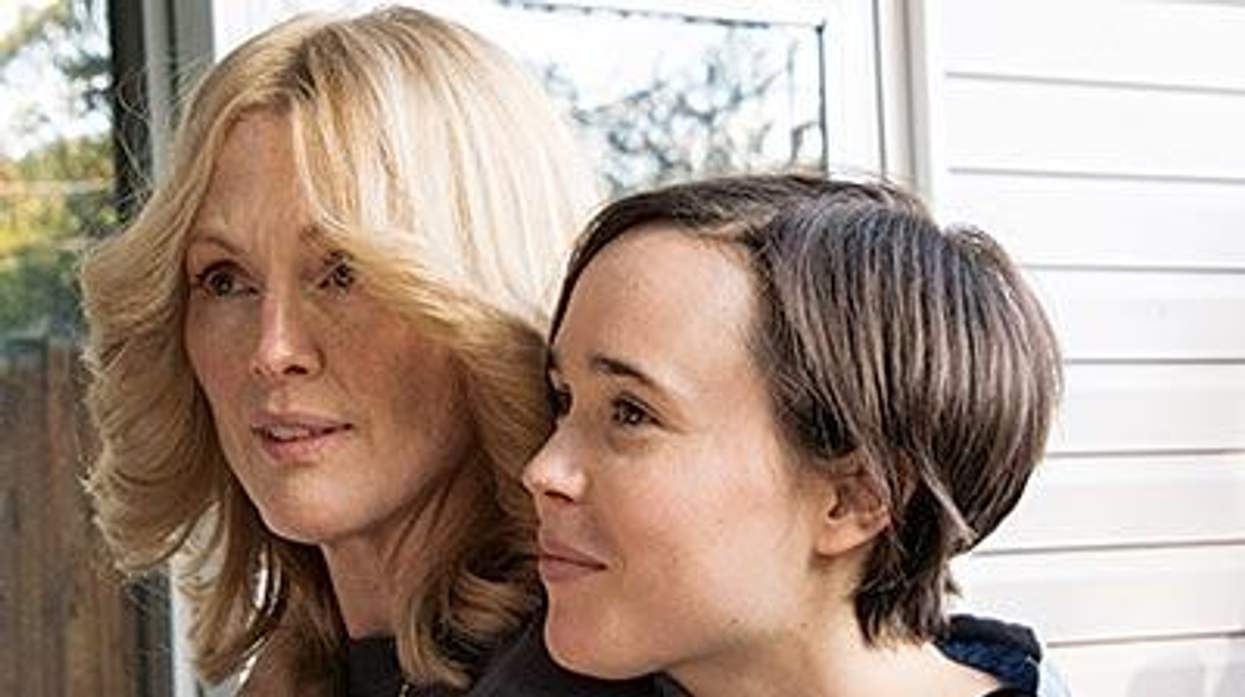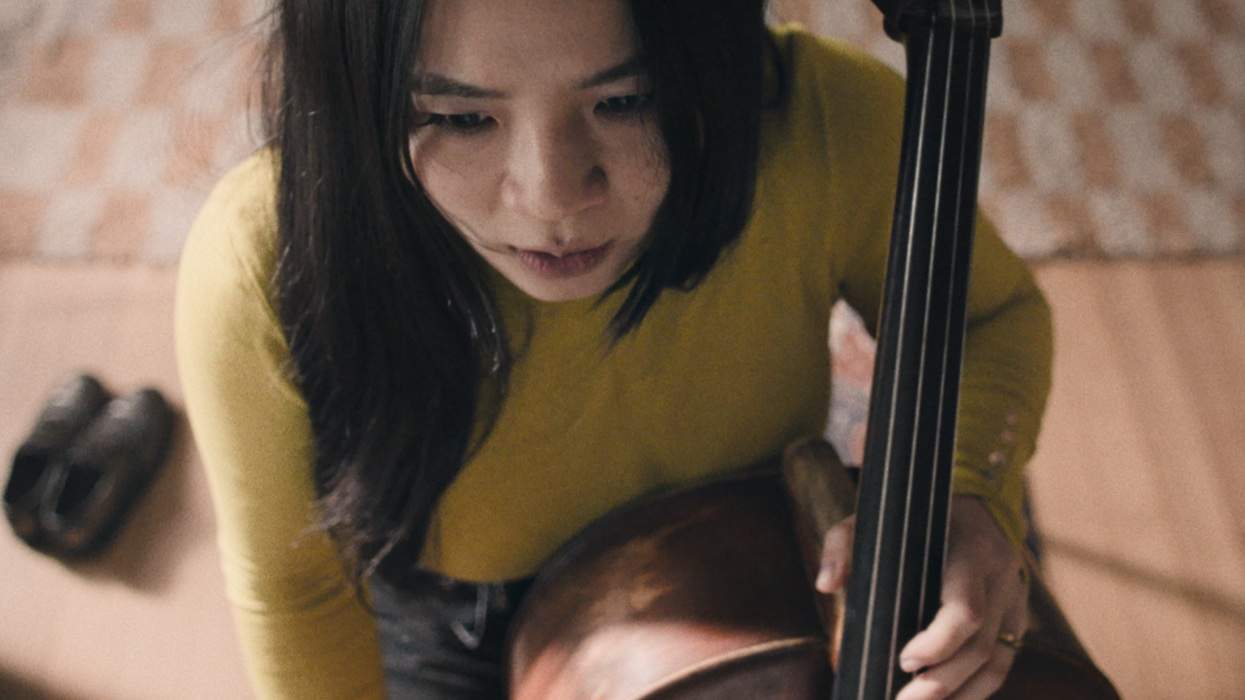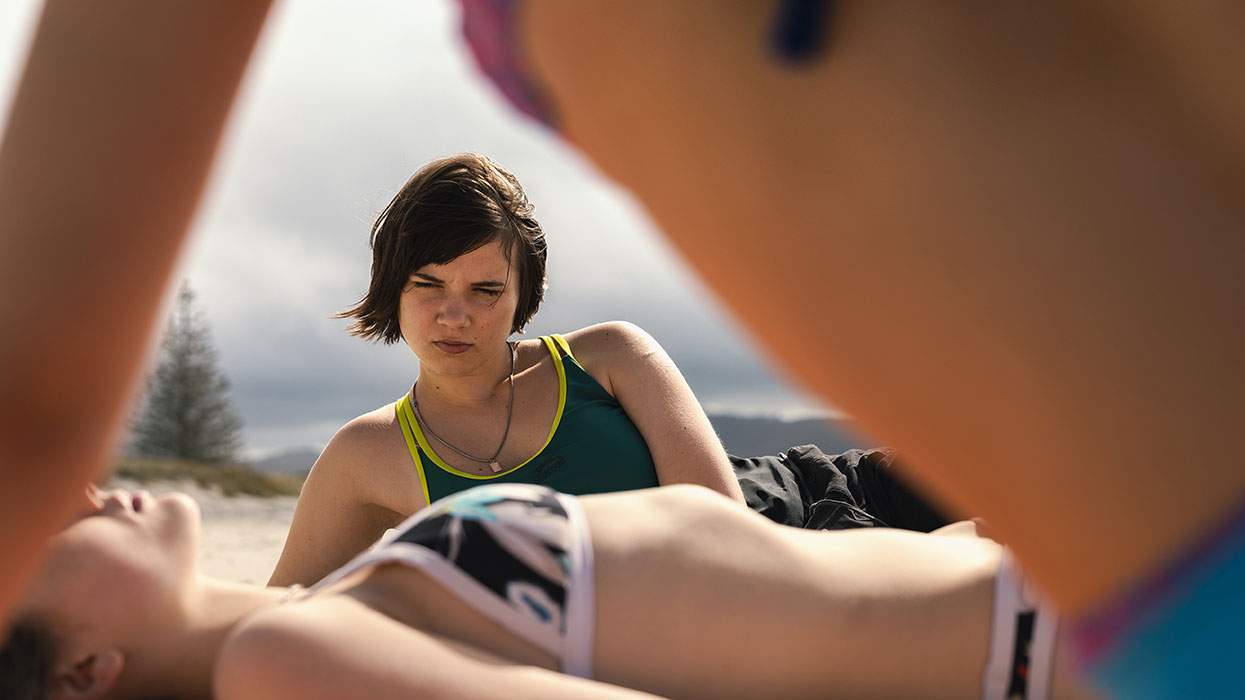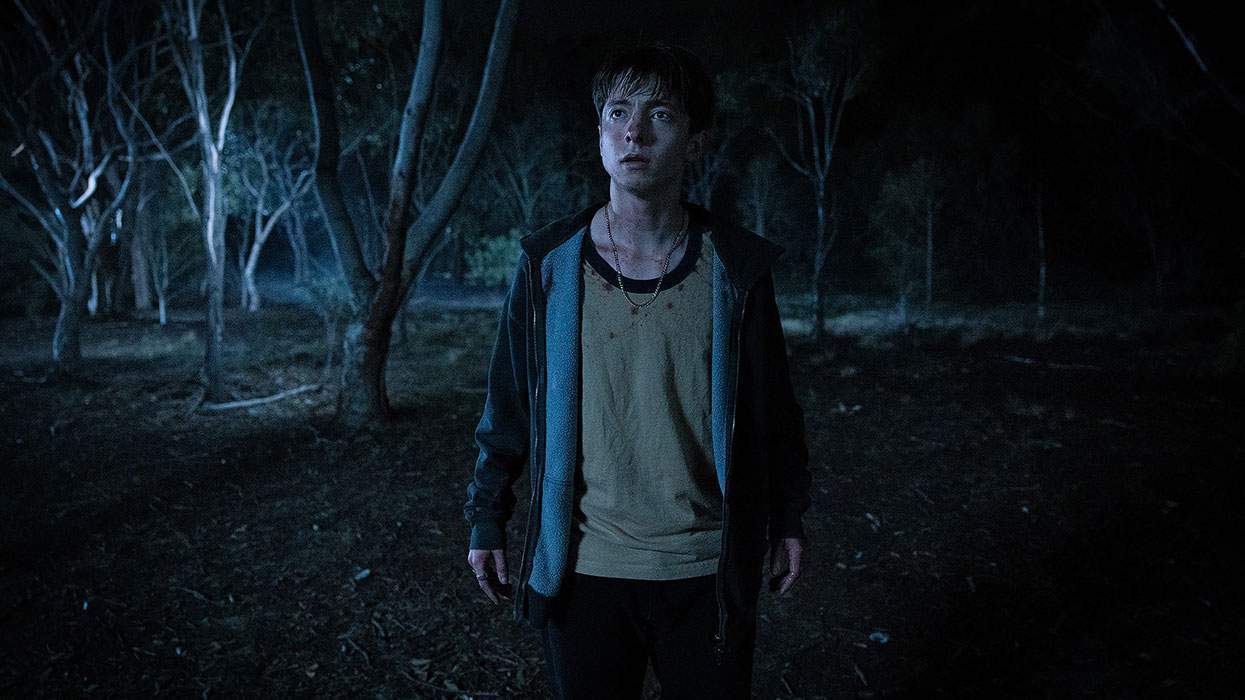Laurel Hester is a New Jersey police detective so closeted at work that she drives several towns over just to socialize with other lesbians. When her cop partner Dane arrives at her new home unexpectedly with a housewarming present, he sees her girlfriend Stacie tooling around with plants on the front lawn. Dane assumes Stacie is the gardener, but Hester corrects him. Hester tells him that Stacie is her "roommate." Stacie rolls her eyes and huffs away.
It's a scene so common as to be mundane, and yet so symbolic. Though Hester eventually does the right thing by Stacie -- becoming one of the most visible advocates for LGBT equality in her state along the way -- that moment cuts right to the heart of every queer person over a certain age who has been introduced as the "friend" or "roommate" at some point in their romantic lives. So many of us have.
I've been there. My spouse of 25 years and I have always been out, sometimes to our detriment, but my first girlfriend and I were closeted for two years. We were "roommates," "friends," even "sisters" on occasion, and we played it so well that we double dated (with boys) and shared a college dorm (beds pushed together at night, separated by day), an apartment (with a roommate), and briefly a room at a homeless shelter where the only person who guessed our truth was a 26-year-old bisexual sex worker with a broken jaw and life experience we could barely fathom. I was closeted on the job at the time as well. This was the late 1980s, but a 2014 Human Rights Campaign survey reported that over half of all LGBT people in the United States are still closeted at work today.
The "roommate" relationship game is brutal and heartbreaking, and when you're ready to be out and the other person isn't, hearing yourself described as the "roommate" cuts to the bone. Of course, with Hester and Stacie, this moment is both real life and cinematic history: The scene comes from the new film Freeheld, the true story of Laurel Hester (played by Julianne Moore), a woman who, in 2005, is dying of lung cancer and fighting to have her partner of five years, Stacie Andree (Ellen Page), inherit her pension benefits after Hester's death. The Ocean County, New Jersey, Freeholders (akin to a city council) decline to offer pension benefits to registered domestic partners, arguing that it's not in their power. With the help of Garden State Equality (New Jersey's largest LGBT organization) and its founder Steven Goldstein (portrayed by Steve Carell), Hester--a 25-year veteran of the local police force--fights back. Though the battle will pave the way for marriage equality in the state, Hester throughout the film demands that it's not about marriage. It's about equal rights.
Moore, who won the best actress Oscar earlier this year for Still Alice, is magnificent and agonizing in the role, elevating a thoughtful film about complex queer women as she has numerous times in the past, most recently in The Kids Are All Right.
"She inarguably reaches a new height in her groundbreaking career," says Freeheld director Peter Sollett. "To work with her on this true story was incredibly inspiring. Her dedication to getting to know the real-life subjects of our story and to depicting that with integrity set the standard for all of us."
Her co-star, Ellen Page, agrees. "She's just so good. When you're working with someone who is just so extraordinarily present--because they are just so good at what they do--when you're in the scene with them, they bring more out of you. The really special thing about Julianne, which is so lovely and inspiring, is that she just loves what she does."
Having been in blockbusters including X-Men and Inception, Page--who was impressive in her breakout role as a teen girl turning the tables on a sexual predator in Hard Candy--is perhaps still best known for the indie flick Juno. Freeheld is Page's first film to be released since she came out as a lesbian.
Though it's a true story that she says is "so, so devastating," Page admits that playing a role in which her character fell in love with a woman was a special experience. "It was a feeling on set that I hadn't had in a very long time," she says. "As a lot of people can probably relate who've been in the closet, you lose a lot of inspiration, ambition, general joy in your life. There's this sort of cloud that's always pursuing you. To get to be out of that and then also get to play a gay character was a pretty nice experience."
It shows on screen. Though she looks young as the sweet, butch mechanic who falls in love with the older cop, there's something luminous and arousing about Page in the role that we haven't seen before. After a career in the closet, Page may be discovering parts of herself. Her work conveys a deep understanding of the story's complexities better than many young actors could achieve. Page says, "Stacie enters a relationship [that's] closeted, and it's not the most ideal situation. But there's some sort of understanding of the complexity of it [for Laurel]. That's something that I can relate to...I can understand the pain, the compromise."
There's queer cred throughout the film, including gay screenwriter Ron Nyswaner, who came to fame for penning the 1993 screenplay to the groundbreaking Tom Hanks film Philadelphia.
In such films, Page says, "You hope you show the level of pain and shame of having to be closeted and then having to fight for a right that is so clearly yours...You just want to help those who are clearly having trouble understanding potentially understand. Maybe move them in a way that starts to make a change, or helps them evolve in some capacity. And you also hope young gay people or young gay women can go and watch the movie and see some part of their story realized. It's such a thrill to be able to go sit in a theater and be like, Wow, some aspect of my story is being told here. When you're gay or really part of any minority, you don't get that as much."
On the surface, the story doesn't sound sexy: a woman fights for pension benefits due her as a public employee, then dies shortly after winning. But the film has real sex appeal, especially in the beginning as the tension and romance develop between the two women.
"Julianne and Ellen brought the story's sensuality to life," says Sollett. "Their chemistry is undeniable and occasionally flammable."
It's a tough task in a film that has to show two women as they meet, fall in love, get it on, come out, get sick, and launch a legal civil rights battle in rapid succession. Page chalks it up to a wonderful friendship between her and Moore, as well as Moore's being "probably the straight actor who's told the most gay stories" on film.
There's urgency to the movie's themes of love and equality that we've seen in other gay films, though most (from Milk to Brokeback Mountain and Desert Hearts) are rooted in the past. But Freeheld takes place just a decade ago, and it feels very much like a marker of current issues from workplace discrimination to same-sex marriage.
And Freeheld is revolutionary in its ordinariness too. The lesbians depicted here look like the ones you see every day, from Olivia cruises to working-class towns across the country, wearing sensible shoes and, occasionally, flannel shirts. As Stacie, Page looks very much like half of lesbian America's first girlfriend. Significantly, Freeheld's wardrobe underscores how much the feminine look of The L Word has come to dominate cinematic visions of lesbians. But real-life photos of Stacie and Laurel look a lot like they do on screen.
"We typically see very safe--in regards to the male gaze--lesbian characters," Page says. She was excited to realize that "the agenda was to make something very real. I'm happy that you get to see two female leads on screen who get to dress the way we got to dress. You don't see that very often."
At alternating times the film is also heartrending, uplifting, exquisitely graceful, intricate, and maddening. Comparisons to other films are inevitable, and I expect to see some critics shorthand it as a lesbian Brokeback Mountain. Page snorts when I tell her this.
"It just goes back to the fact that there [are] so few of the stories being told in a big way--of course we have queer cinema and what have you, but it doesn't always break through into the mainstream. It'll probably get compared to Philadelphia particularly because Ron wrote Philadelphia and there are similarities. Hopefully we'll get to a point where we have enough queer, trans, etc., stories out there that we won't be having that conversation anymore, and it will just be another movie."
For his part, though, Sollett tells me he won't thumb his nose at the comparison: "Brokeback is a beautiful, well-acted, and tenderly directed film--any comparison between ours and theirs is just fine with me."
See the trailer for Freeheld below:
















Charlie Kirk DID say stoning gay people was the 'perfect law' — and these other heinous quotes
These are some of his worst comments about LGBTQ+ people made by Charlie Kirk.